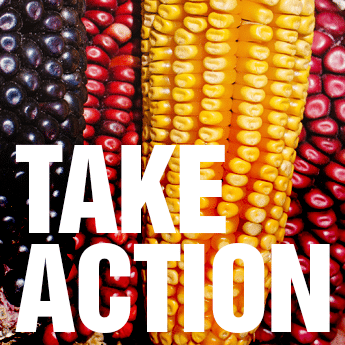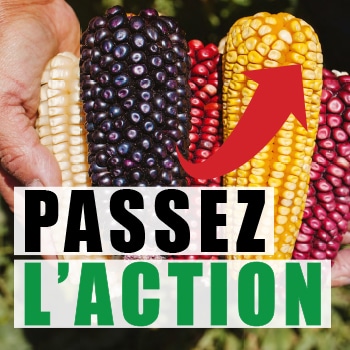Golden Rice not yet ready
Letter to the Editor
Published in the Ontario Farmer, Tuesday March 20, 2012.
By Lucy Sharratt, Coordinator, Canadian Biotechnology Action Network
It is supremely ironic, and gravely tragic, that I read about OMAFRA crop specialist Peter Johnson spreading false information about genetically modified Vitamin A “Golden Rice” in an article titled “Countering GMO Misinformation” (Bob Reid, March 6). Golden Rice is not ready for the market and yet Johnson told an audience of farmers that groups such as Greenpeace are responsible for keeping it from being used.
Most seriously, Johnson thereby alleges that Greenpeace is responsible for the continued misery of serious illnesses and deaths caused by Vitamin A deficiency. This is a misrepresentation of reality and a distasteful charge.
Firstly, the fact remains that Golden Rice is not ready for commercialization. Greenpeace has not delayed the introduction of Vitamin A rice, the technology has repeatedly failed to meet its promised objectives over the past 20 years of development. The first version did not provide enough Vitamin A – an adult would have needed to eat 3.7 kilograms of dry weight rice a day, that’s 9 kilograms of cooked rice, to get a sufficient dose – and the second is still in field tests. The Board that stewards Golden Rice has not yet asked for approval in any country but says they will be able to ask for approval next year in the Philippines and in 2015 in Bangladesh.
Secondly, while Johnson mocks the suggestion that Vitamin A deficiency can be solved by diet and dietary supplements, the reality is that this strategy to address malnutrition is succeeding where Golden Rice has failed. $100 million has been spent developing Golden Rice – yes $100 million! – and in the meantime the Philippine government has successfully reduced Vitamin A deficiency via supplementation. Vitamin A supplementation and food fortification in the Philippines began in 1999 and reduced Vitamin A deficiency in preschool age children from 40% in 2003 to 15.2% in 2008 (the World Health Organization considers 15% to be the cutoff for when deficiency is no longer considered a public health problem). The Canadian government has sponsored Vitamin A supplementation in other countries for many years.
The Golden Rice project itself says “The best way to avoid micronutrient deficiencies is by way of a varied diet, rich in vegetables, fruits and animal products.” At a February forum on Golden Rice in the Philippines, Chris Chavez, Secretary General of United Peasants in Panay and Guimaras said, “Food insecurity is brought about by lack of enough land, by decreasing rice production and decreasing incomes. Only through a genuine land reform which ensures farmers’ access to sufficient rice and other food sources will farmers start to become healthy again.”
Finally, it is simplistic and paternalistic to give Greenpeace credit for the controversy over GM rice. Rice is daily food for half the world’s population so the introduction of GM varieties is necessarily the subject of serious consideration by farmers, consumers and governments. In June 2011 the Ministry of Agriculture in Thailand detailed a “Rice Strategy” that committed to non-GM rice as part of strengthening the nation’s rice production while promoting farmers’ livelihoods and consumer confidence. The policy is supported by Thailand’s Rice Exporters Association. In September 2011 the Chinese government stated it was temporarily suspending the commercialization of GM rice.
It’s both legitimate and necessary to raise questions about the possible impacts of new technologies and ask if such technologies are needed, especially if effective and less costly solutions already exist. It is irresponsible to spend $100 million without asking those questions. These questions also need to be asked in Canada. Which applications of genetic engineering benefit Canadian farmers? Are GM alfalfa and GM pigs necessary? Surely Canadians should be able to ask these questions without being accused of complicity in the deaths of children in poor countries.






